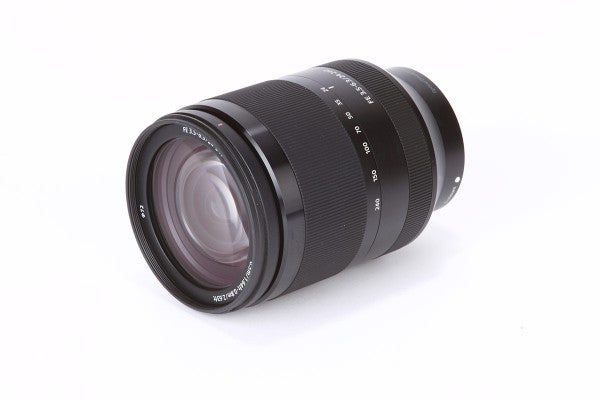Sony’s travel zoom lens for its Alpha 7 series of cameras has a complex design, but how well does it partner with a full-frame sensor? Richard Sibley finds out
Sony FE 24-240mm f/3.5-6.3 OSS Review
The new FE 24-240mm f/3.5-6.3 OSS is aimed at a user who values convenience very highly. It is a lens with a 10x optical zoom range, and as such it can cover a huge variety of different shots, from landscapes and portraits to travel, and even at a push some wildlife and sports images.
It may not have a large aperture, but this is a lens to leave on your camera knowing that, in most cases, you will be able to get the shots you need. It sounds too good to be true.
There is, of course, a compromise. A zoom lens with such a wide focal range is going to be very complex, and indeed the 17 elements in this lens are arranged into 12 different groups. This means that somewhere within that range the optical quality is going to suffer, and this will show in different ways in different images.
Curvilinear distortion, chromatic aberration, vignetting and lack of sharpness are potential problems that we have seen in other travel zoom lenses. But are any of these problems severe enough to put the lens beyond consideration?
Features
As stated, the lens is constructed from 17 elements arranged into 12 groups, with lens-based optical stabilisation helping to reduce camera shake, which is essential when shooting at the 240mm end of the focal range.
As is common with travel zoom lenses, the aperture range is f/3.5 at its widest 24mm setting, stopping down to f/4 by about 30mm, f/5.6 by around 70mm and f/6.3 by around 110mm. Having larger, or more constant, apertures would require a significantly larger lens design, which defeats the object of having a reasonably sized travel zoom lens in the first place.
It is worth noting at this point that the 24-240mm currently has the longest focal length of any FE-mount lens, beating the previous holder of that title, the FE 70-200mm f/4 G OSS.





